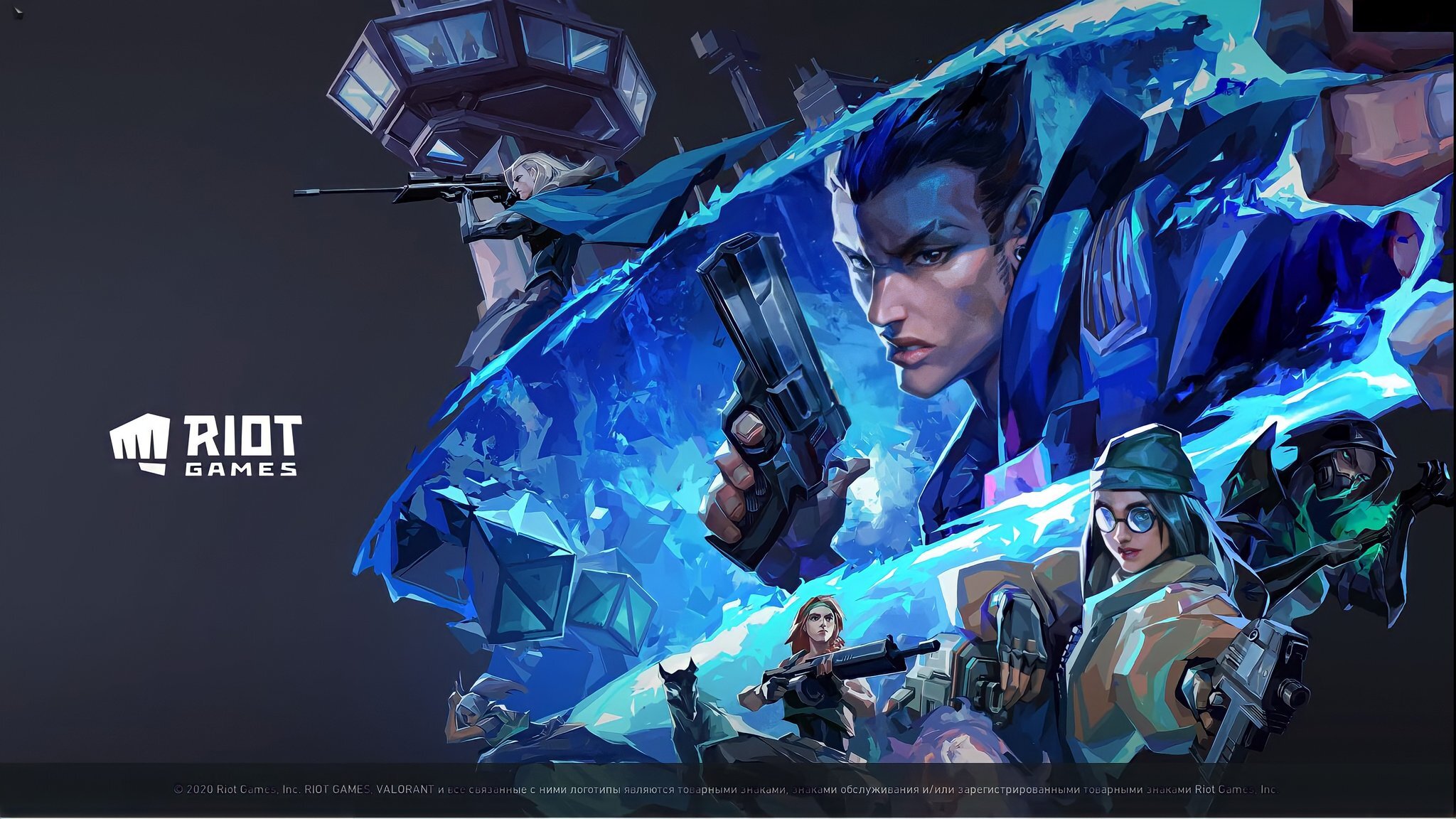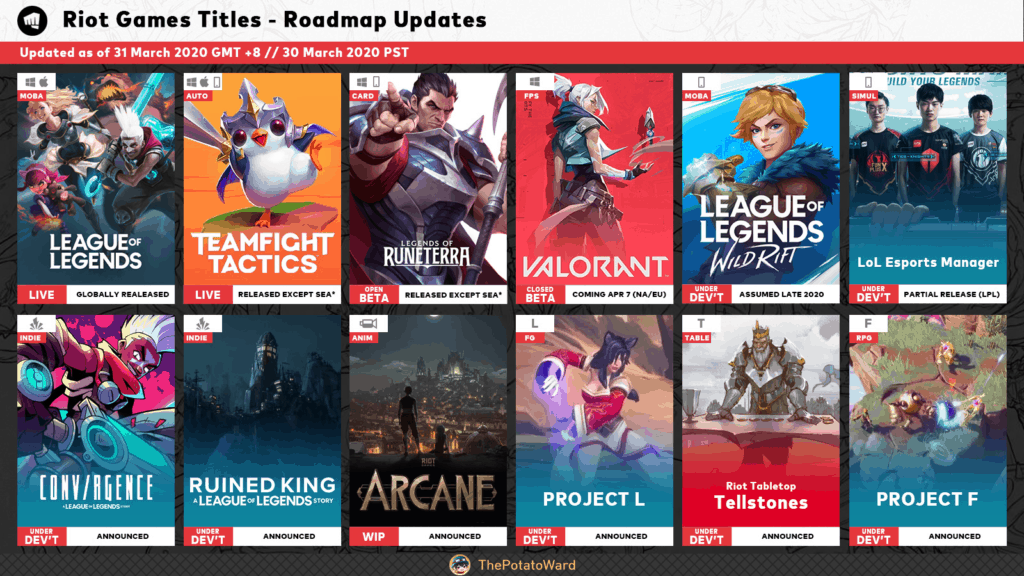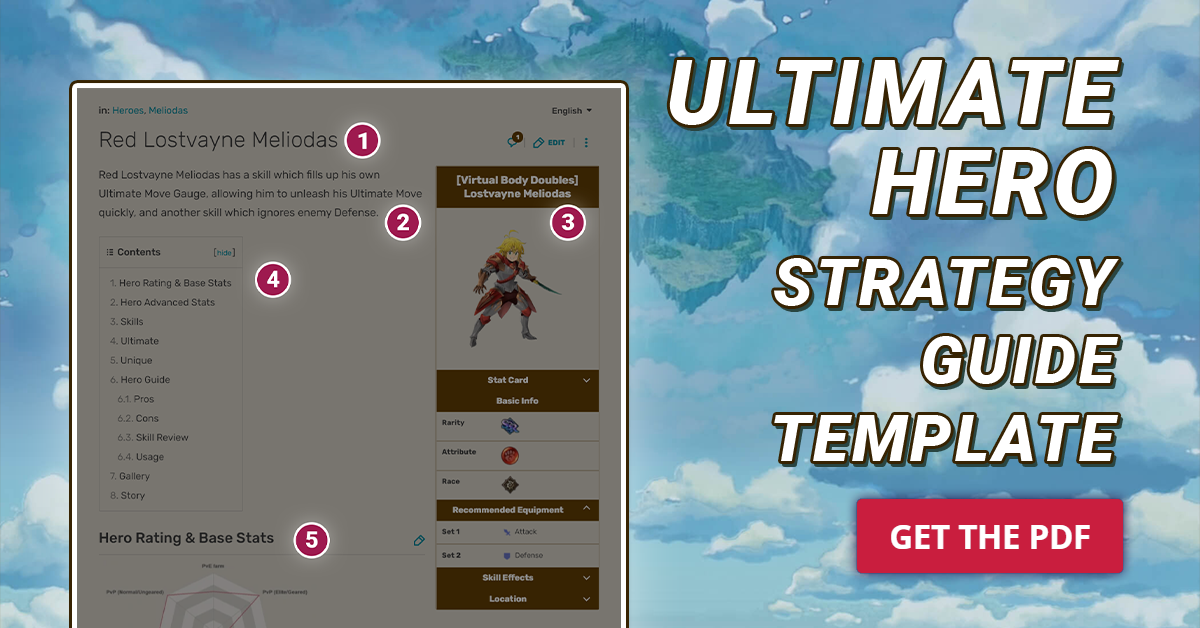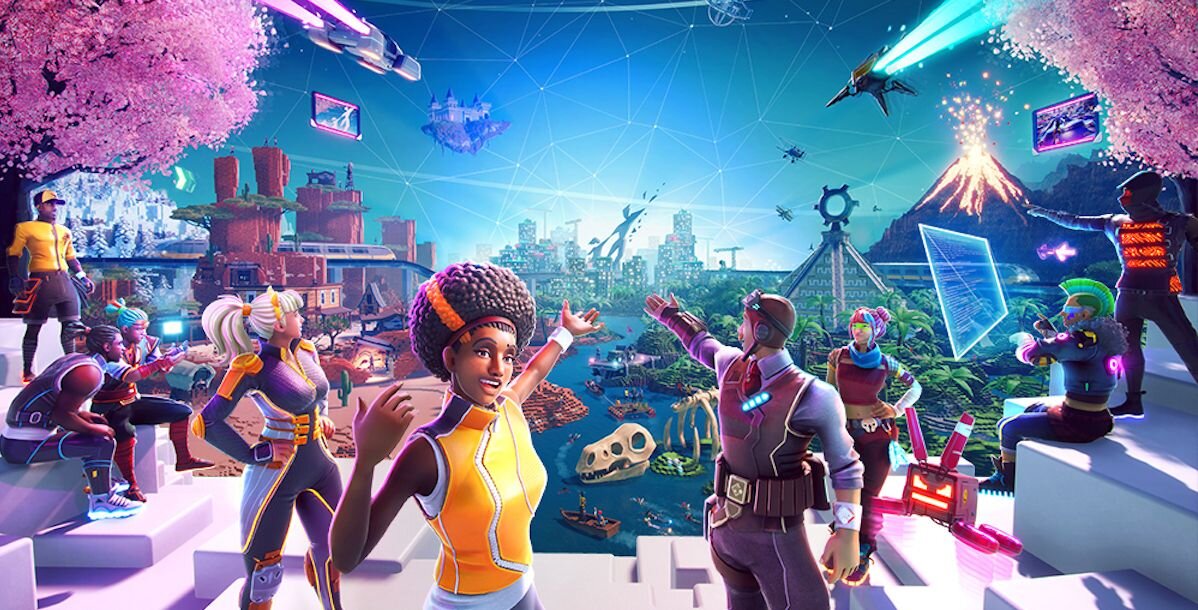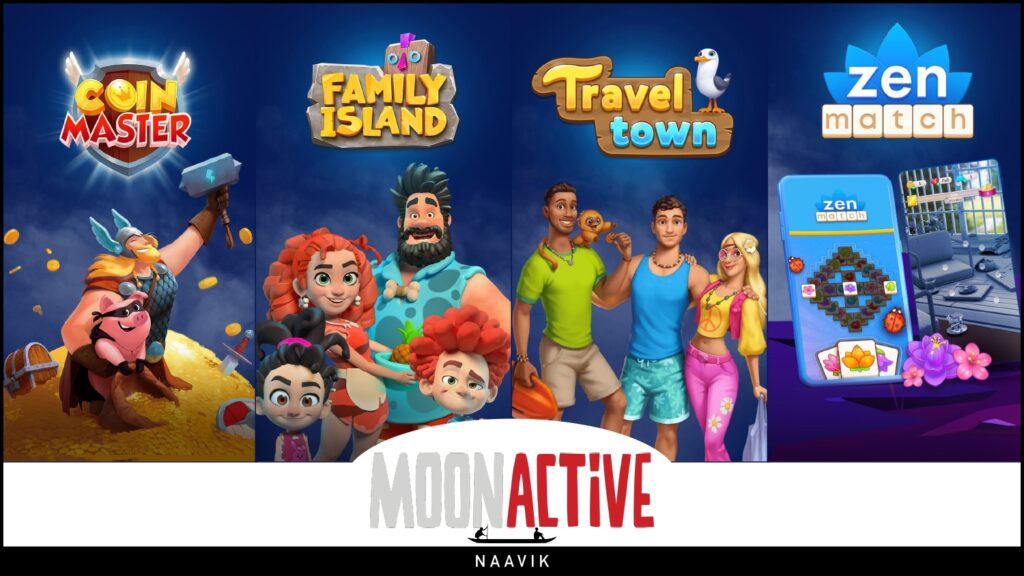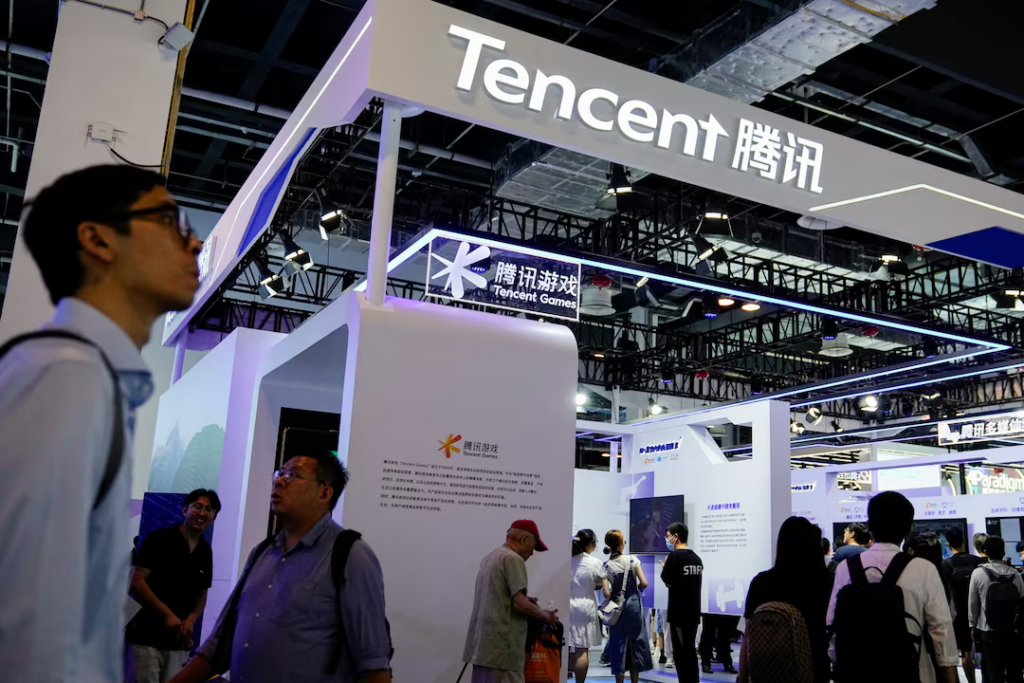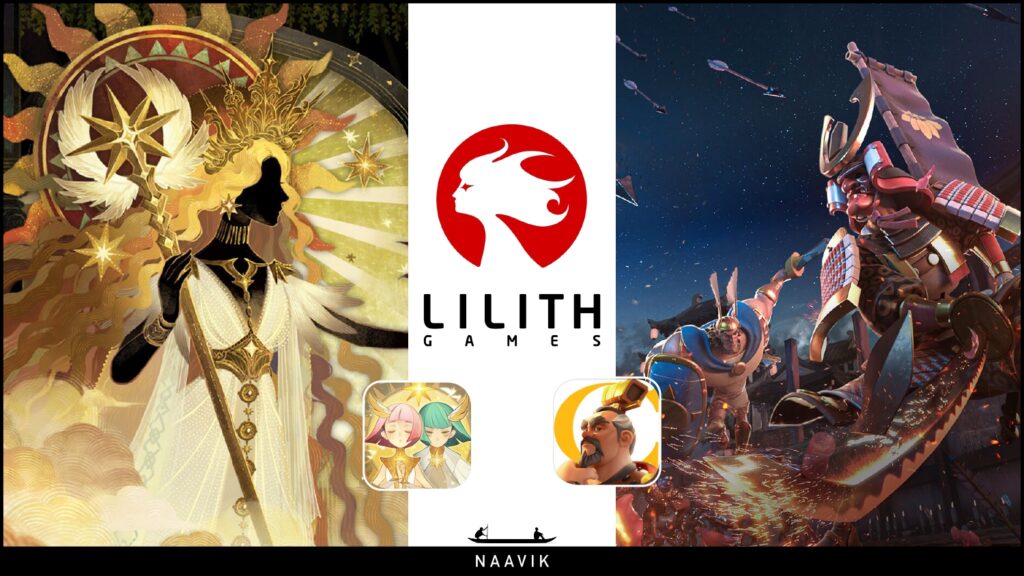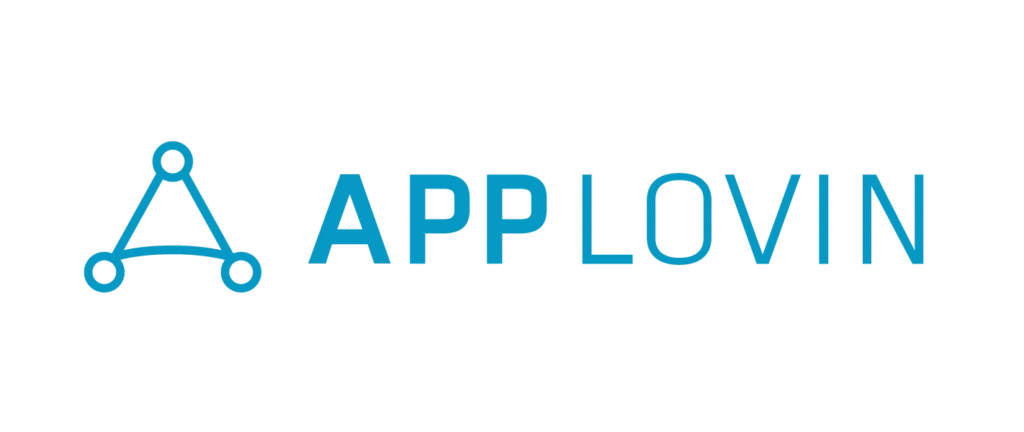Hi Everyone. Welcome to our first Wednesday issue. As we announced on Sunday, Master The Meta will be bi-weekly moving forward. We’re excited to share the latest in gaming twice a week. Today we have two announcements for you:
First - We’re thrilled to welcome Sagar Datta as the newest consultant on the Naavik team! His background is diverse, dabbling in Production, Design and Product. He has 10+ years in games to show for it, with his longest stint being at Wooga. We’re excited to work with Sagar, and if you’d like to as well — reach out here.
Second - Our consulting team is rapidly growing and we’re eagerly looking for market research and economy design consultants with deep industry experience and an innate passion for games. If that’s you and you’re interested in joining Naavik as a consultant, please reach out to Manyu.
Naavik Exclusive: In Conversation with Moritz Baier-Lentz, Partner at BITKRAFT Ventures
Source: BITKRAFT Ventures
Earlier this month, we had the chance to sit down with Moritz Baier-Lentz, Partner at BITKRAFT Ventures. BITKRAFT is one of gaming’s top venture firms, investing in notable companies like Epic Games, Manticore, & Yield Guild Games. In this conversation, Moritz discusses his history with esports, starting up Goldman Sachs’s gaming arm, growing trends in gaming, and BITKRAFT’s approach to investing — enjoy!
#1: Riot’s Mobile Pursuit
Source: Riot Games
Back in October 2019, Riot celebrated League of Legend’s 10 year anniversary with this livestream and simultaneously sent tremors through the industry by announcing multiple new mobile game projects:
-
TFT: Teamfight Tactics (Autochess) - Released March 2020
-
Legends of Runeterra: Legends of Runeterra (Card Battler) - Released April 2020
-
League of Legends: Wild Rift (MOBA) - Released October 2020
-
League of Legends: Esports Manager (Team Manager) - TBD
-
[Newly Announced] Valorant Mobile (First-person Team-based Shooter) - TBD
Source: ThePotatoWard
As SensorTower puts it — “Just over 16 months into Riot Games’ first foray into mobile titles, the publisher has released three games and generated $108.4 million from player spending.” Quite frankly, that is a very commendable feat for a company that has primarily focused on one PC game since 2009 and compared to other similarly sized/larger companies that take the same amount of time to release just one title. While Riot will take time to build their mobile revenue contribution up to LoL’s $1.75 billion 2020, they’re off to a good start.
That said, achieving competitive success on mobile is a very different ballgame and the numbers below would make it seem like Riot is feeling the heat:
-
LoL: Wild Rift is tracking quite well versus Mobile Legends: Bang Bang, but is miles away from Supercell’s Brawl Stars and Tencent’s Arena of Valor.
-
LoR’s revenues are pretty insignificant against the competition, and MTG Arena is showing comparable performance in just a matter of five months.
-
TFT is a sub-genre leader and likely driven by the IP attached to it, but the Auto Chess sub-genre’s revenue opportunity is generally insignificant against other target sub-genres.
While there are nuances to justifying the scale of these numbers — such as audience demographics, platform featuring impacts, user acquisition volumes etc. — it should be noted that both LoL: Wild Rift and LoR are showing strong per user performance metrics. These are comparable to those of the respective sub-genre top performers. In other words, it seems like both games need to figure out maximizing discovery and distribution to truly juice revenue volume.
Source: Sensor Tower
But is Riot really worried about sub-genre dominance? I’d argue not so much. Through a recent interview with Marc Merrill, the company’s steadfast focus on the “long-term” is clear. Merrill goes on to say — “The reason ‘League of Legends’ is big isn’t because we’re great at acquiring players. It’s big because we’re great at not losing people.” Bringing that together with Riot’s first of five core values — “Player Experience First” — tells me that Riot’s mobile ambitions aren’t and probably will never be about sub-genre dominance. It’s likely more about bringing their game experiences and IP to mobile-first audiences, funneling some of them back to their dominant platform, elongating the relationships with their PC audiences across platforms, and finding new ways to engage their audiences across the ecosystem. If mobile market leadership is achieved as a byproduct of creating breathtaking game experiences that their mobile players invest in for decades, then that’s a great value add. It’s just that it’s probably not the driving reason behind why Riot makes games for any platform.
All in all, with the LoL cash cow and IP sitting in the background, Riot has the flexibility to think long-term about their mobile game projects, invest in highly polished game experiences, place distribution second, and go against the tide in terms of implementing F2P design/monetization best practices. And in today’s mobile market, I personally find their games to be a breath of fresh air. That said, none of these efforts are pure passion projects either and Riot knows there is a significant business opportunity on mobile. We’ll likely see them capture that opportunity patiently over time and in their own unique way. (Written by Abhimanyu Kumar)
Sponsored by Gamerspeak
The Ultimate Hero Strategy Guide Template - Free PDF!
Well-written strategy guides for heroes are key for increasing retention for players of all skill levels because guides teach them how to win, and no one wants to play a game they lose at. However, good hero strategy guides can be complicated and very difficult to write.
This free PDF will show you 11 key components of a highly informative hero strategy guide your players will love.
Write your next hero guide confidently with this proven template. Get the free PDF today!
#2: The Metaverse Goes Corporate
Source: VentureBeat
Earnings season has been mostly boring so far, so instead of writing about one company I want to cover a pattern I’m seeing emerge across multiple companies: metaverse talk.
Of course, if you’re reading this newsletter, the metaverse — best succinctly described as the successor state to the mobile internet — isn’t new. It’s been talked about ever since Matthew Ball started writing about Fortnite, and I think Piers Kicks sums it up best: “The Metaverse: a persistent, live digital universe that affords individuals a sense of agency, social presence and shared spatial awareness, along with the ability to participate in an extensive virtual economy with profound societal impact.” In other words, even though much of the emerging tech and ongoing conversation naturally stems from cutting edge corners of the games industry, it’s really about a more immersive, more interconnected, and more rewarding internet. Many say the metaverse is on its way (or overhyped buzz); I say we’re already in it… just a prototype version still sorting itself out.
Notably, what began as a relatively niche discussion a couple of years back is now making it into mainstream business discourse. Here are some recent quotes from notable business leaders:
-
Mark Zuckerberg (CEO, Facebook’s latest earnings call): “Now the areas that I've discussed today: creators, commerce and the next computing platform, they're each important priorities for us, and they're each going to unlock a lot of value on their own. But together, these efforts are also part of a much larger goal: to help build the metaverse… So in addition to being the next generation of the Internet, the metaverse is also going to be the next chapter for us as a company. And in the coming years, I expect people will transition from seeing us primarily as a social media company to seeing us as a metaverse company.”
-
Satya Nadella (CEO, Microsoft’s latest earnings call): “As the digital and physical worlds converge, we are leading in a new layer of the infrastructure stack, the enterprise metaverse.” Later in the call: “Gaming is the largest category in the entertainment industry, and we are expanding our opportunity to reach the world's 3 billion gamers wherever and whenever they play. We are all in on games.”
-
Jensen Huang (CEO, Nvidia; when asked how Nvidia Omniverse connects to the metaverse): “Adobe is a world. Autodesk is a world. When someone is working on their content, they’re in their world. These worlds are going to get richer and richer, as these worlds that you’re creating in [3D animation software] Maya start feeling like you’re in virtual reality. And so, your workgroup will feel like you’re in a world. And what we would like to do is to connect all of those worlds together, for the various workgroups, the various studios, and they can work on one giant world, one giant piece of content. Separation between application and this concept called a world is going to become blurrier and blurrier.”
-
James Mitchell (CSO, Tencent’s latest earnings call): “Now I wouldn't say that Metaverse is a genre. Metaverse is more of an overarching opportunity in which different kinds of games are played within a single sort of social graph and software suite… We believe it's highly probable that you'll see similar Metaverses emerge that are consistent with the demands and expectations of all the users. And that's a wide-open field at the moment. No one has realized that vision yet, although some people are closer than others. And we certainly believe that we're in a good position to be one of the companies that realize that vision given our expertise at creating and operating games, given our history of facilitating social interactions, and also given our cloud infrastructure at the back end because the Metaverse will be very infrastructure intensive.”
-
Dave Baszucki (CEO, Roblox; interview): “We almost see ourselves more as the creators of a primitive part of the electrical grid, back there in the distance, and we’re trying to more and more highlight the creative genius of our creator community, which is really the real engine that works with us to power our part of the metaverse.”
-
Tim Sweeney (CEO, Epic Games; Twitter): “We’ve had metaverse aspirations for a very, very long time. It started with text chat in real-time 3D with 300-polygon strangers. But only in recent years have a critical mass of working pieces started coming together rapidly.”
That’s a lot of quotes, but so what? Two takeaways. One, metaverse discussion is here to stay; more leaders are catching on to how the internet will evolve, and now that there’s a popularized term for it they are doing their part to best adapt, communicate, and build hype around that vision. Second, however, it’s clear that ‘metaverse’ is still a semi-nebulous buzzword and even big tech leaders aren’t unified in their vision or understanding of what it means. After all, what the heck is “the enterprise metaverse,” and why is Tencent discussing metaverses (plural)? These companies will never be fully aligned, but uniting on a proper definition would be a good start!
I’ll leave you with a couple of predictions:
First, “the metaverse” will roll through the hype cycle like any other emerging technology or trend. Hype will continue to build — next-gen infrastructure, computing, social, and content companies will all be talking about their roles in and visions for the metaverse shortly. Then reality will set in that these aspirations will take years (if not decades) to play out, people will move on to the next hot topic, and then once the hype has waned the pieces will start more quietly clicking into place at an accelerated rate.
Second, even though the metaverse is idealistically about a more interoperable internet, interoperability will be limited because of competing visions, business models, and in some cases, regulations, data formatting, and network limitations. Games, in-game items, or even social graphs won’t interoperate any time soon in a meaningful way, and neither will most large internet businesses. That said, there will be interesting exceptions — such as PlayStation integrating Discord, plus blockchain-based experiments — and those instances will be worth paying close attention to. Once the advantages of interoperability start to show (and it becomes less of a pain to integrate), more companies will join in with their own strategic partners. Giving users the right to port their own socials graphs is a good start, but even that is unlikely for now.
Lastly, expect games to remain at the cutting edge of all metaverse chatter for years. After all, if we’re on a path to a more immersive, social, rewarding, compute-intensive, interoperable, and dare I say fun version of the internet… games benefit from all of that. There’s a reason why companies like Epic Games and Roblox are in pioneer positions, why Microsoft is all in on games (despite being an enterprise-first business), why Nvidia heavily caters to gamers and creators, why companies like Facebook are pioneering new platforms (VR) with a games-first strategy, and why the intersection of games and crypto is a hotspot of activity.
Of course, it’s important to remember that “the metaverse” isn’t a strategy, especially for games companies. Yes, it’s a huge deal — new experiences and business models will gradually be made possible, value chains will evolve, and successful pioneers will be rewarded. However, at the end of the day, most of the same bottoms-up fundamentals will remain unchanged: smart game design, calculated user acquisition, thoughtful live ops tactics, smart capital allocation, building awesome teams, etc. It’s wise to focus on the future, but don’t get lost in the hype. (Written by Aaron Bush)
📚 Content Worth Consuming
Introduction To The Metaverse (Newzoo): “By now, it’s hard not to have become aware of the Metaverse. The combination of COVID-related stay-at-home orders, which led to the increased stimulation of real-world activities, and the thought leadership of visionaries such as Tim Sweeney and Matthew Ball, have shined a spotlight on the virtual concepts most famously depicted in science fiction classics Ready Player One and Snow Crash. In this 78-page free report, we look at the immediate opportunities and impacts the Metaverse has on the gaming ecosystem and share our own vision for its evolution, focusing on the implications for gaming.” Link
Why Smilegate Poured $100M into That’s No Moon and its AAA Veterans (GI.biz): “Harold Kim, Smilegate's vice president of business development, says: "Smilegate's goal is to become a global player in the industry. We have been doing well in the competitive gaming space but what we lack is the storytelling element. Smilegate's goal in expanding into Western [markets] is [about] how we strengthen our storytelling element. Los Angeles [where That's No Moon is based] has Hollywood and the film industry, which also has a tremendous amount of storytelling experience." Link
Ryan Gill, Cofounder & CEO at Crucible (Tomorrow With Rovio): “The explosion of NFT’s and crypto have leaders across every industry thinking about how to explore their applications. The potential within the gaming industry is undeniable, with the explosion of microtransactions, character customization options, and brand collaborations. Ryan Gill is the founder of Crucible, a company working on creating tools and communities to prepare for an open metaverse. Ryan joins us to break down all things blockchain, their applications in games, and how we can build the bridge between the spaces.” Link
🔥 Featured Jobs
-
Not Doppler: Senior Data Analyst (Sydney or Remote) (Remote, Global)
-
Metafy: Senior Product Manager (Remote, US)
-
Carry1st: Producer (Remote, Global)
-
LightHeart Entertainment: UI Artist (Helsinki)
-
LightHeart Entertainment: Senior Game Programmer (Helsinki)
-
Immutable: Economy Game Designer (Sydney)
You can view our entire job board — all of the open roles, as well as the ability to post new roles — below.
Thanks for reading, and see you next week! As always, if you have feedback let us know here.



